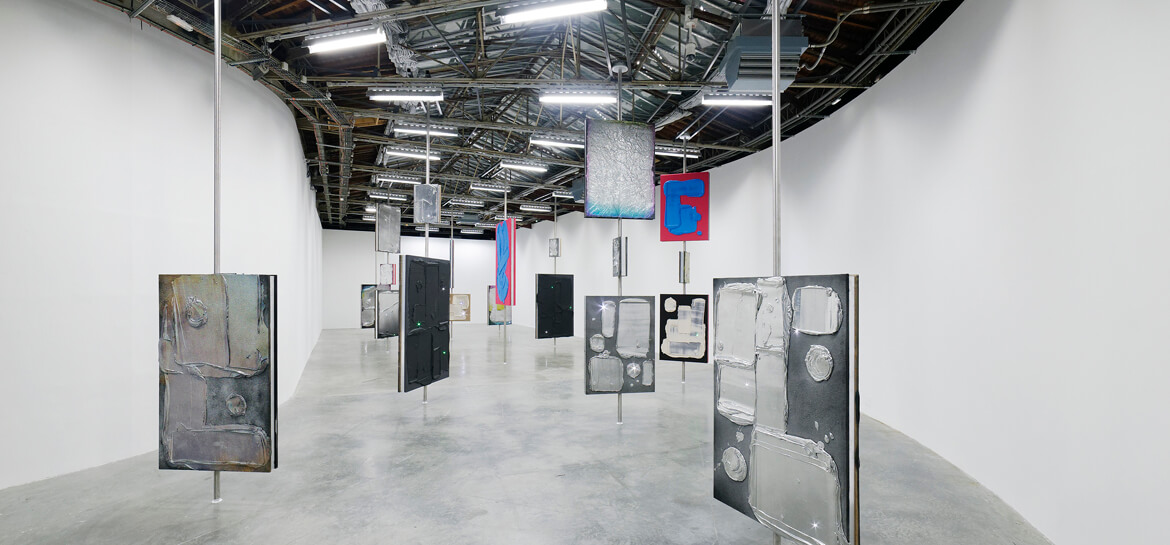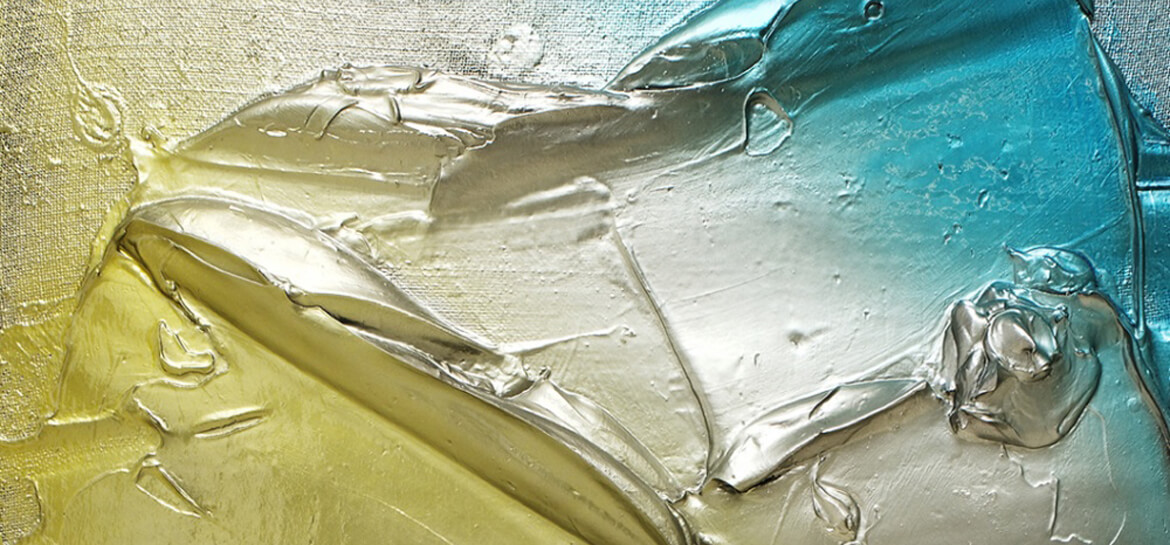SEARCH THE ENTIRE SITE

Florian et Michael Quistrebert
The Light of the Light“From optical art, all we’ve kept is the feeling of vertigo, the mechanisms that lead to a state close to being slightly drunk, challenging the reliability of the eyes. Optical art, like geometry in general, has a series of associations linked to psychedelia, drugs and, by extension, beatitude and fascination. The obvious is irrational. And this toing and froing between scientific control and mystical vertigo intrigues us.” (1)
Palais de Tokyo is presenting the first large-scale monographic show of Florian and Michael Quistrebert (born in Nantes in 1982 and 1976, live in Paris and Amsterdam). This duo of brothers, nominated for the Prix Marcel Duchamp in 2014, is producing a set of new works for this occasion. Mingling colours, light, mass and illusions, the Quistreberts play with visitors’ minds and visions, drawing perceptions toward other dimensions.
Invited to occupy a space measuring 1000 m2 in Palais de Tokyo, they are putting on an eclectic piece of optical theatre in which lights, videos and paintings lead the visitors, all while experiencing erratic disturbances by the shine and internal motions of various objects.
In their pieces, they summon the ghosts of Malevich, De Staël, Picasso, (Hans) Richter and Fischinger, amongst others, while going back over the main themes of modern art, using contemporary, experimental techniques, in association with their particularly personal approach to materials. Their paintings, like their videos, explore the effects of light and shade which are both seductive yet at times, hypnotising and repulsive.
The fifty-odd painted pieces produced for the exhibition, pivot and turn around themselves, as though moving under their own impulse. Working on large formats, mostly constructed from a burlap base, their iridescently coloured surfaces were worked over with a melange of modelling clay, lacquer paint for cars, and sometimes decked with tiny coloured LEDs. The paintings both allure and confound, thanks to their shiny sparkling finishes, the way they reflect their surroundings and their slow, mechanical rotation. Likely to tip the spectator’s sensory markers and balance, the presentation concludes with an immense, confrontational, trance-inducing video piece placed at the end of the gallery.
(1) Statement by the artists, quoted in Philippe Dagen, “L’héritage décalé de Vasarely”, in Le Monde, 24 March 2012.
Curators: Khairuddin Hori and Hugo Vitrani
A monographic book published by Palais de Tokyo is accompanying this show.
Biography
Born respectively in 1982 and 1976, in Nantes, the brothers Florian and Michael Quistrebert live and work between Paris and Amsterdam. Both are graduates of the École Nationale Supérieure des Beaux-Arts, Nantes. They have been working together since 2007 and were nominated for the Prix Marcel Duchamp in 2014. They are represented by the galleries Crevecoeur (Paris) and Juliette Jongma (Amsterdam). Their work is present in several public collections.
Solo exhibitions of their work have recently taken place at Dundee Contemporary Arts (UK, 2015), the Zoo Galerie in Nantes, and the Domaine Départemental de Chamarande (2010). It has also been possible to see their work in a number of collective shows, including Un mural, des tableaux at the Plateau/FRAC Île-de-France, Paris (2015); De leur temps at the Hangar à Bananes, in Nantes; Le Club des Sous l’Eau at Palais de Tokyo, Paris; Dynamo: Un siècle de lumière et de mouvement dans l’art. 1913-2013, at the Galeries Nationales du Grand-Palais, Paris; The End of the Night at the LACE, Los Angeles (2013); and Les Mystères de l’Ouest at the Centre Georges Pompidou / Musée National d’Art Moderne, Paris (2012).
This exhibition is realized with the support of the Galerie Crèvecoeur
